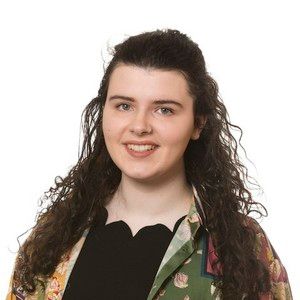Trinity student wins 2020 Mary Mulvihill highly commended award
Posted on: 09 June 2020
Trinity student Aoife Kearins received this year’s Mary Mulvihill judges’ highly commended award, a science media competition for third-level students that commemorates the legacy of science journalist and author Mary Mulvihill (1959–2015).
NUI Galway student James Hayes is the 2020 winner of the Mary Mulvihill Award. Each prize winner will also receive a copy of Ingenious Ireland, Mary’s county-by-country exploration of Ireland’s scientific and industrial heritage, which Four Courts Press republished last year.

To mark the book’s republication, this year’s competition invited entries on the theme of ‘Our scientific heritage’. It encouraged students to submit projects and works in text, audio, visual or mixed formats that explored places, artefacts, personalities, and issues—such as public awareness or conservation—relating to Ireland’s scientific and industrial heritage.
Students from seven third-level institutions across the country submitted entries that covered a broad range of topics, including a history of the Dunsink Observatory, an environmental campaign to preserve Bantry Bay’s kelp forests, and biographical essays on diverse figures, including computing pioneer Kathleen McNulty and microscopist Mary Ward.
Aoife’s highly commended entry, “Sir George Gabriel Stokes: How A Childhood at Ireland’s Coast Became A Wave Of Inspiration For Ireland’s Greatest Scientist”, is an illustrated biographical essay on Gabriel Stokes, who was Lucasian Professor of Mathematics at the University of Cambridge for over 50 years, and who made towering contributions to several fields, including fluid mechanics, viscosity and optics.
Aoife argues that a sense of place is as important for the development of scientists as it is for artists. She traces Stokes’s lifelong obsession with waves and the movement of fluids back to his childhood in Skreen, County Sligo, close to Dunmoran Strand and the Atlantic Ocean. “The time he spent there was short, but its influence on him and his research was long-reaching, with his childhood activities of walking by and bathing in the sea being credited for first piquing Stokes’s interest in ocean waves, which he would go on to write papers about,” she writes.
“Aoife Kearins presented an engaging narrative of a long life of exploration and investigation into the nature of waves. She explored the sense of place and its importance in development of scientific curiosity, with vivid descriptions of the life of Sir George Gabriel Stokes from childhood to scientific acclaim,” said Nigel Monaghan, Keeper, National Museum of Ireland – Natural History and a member of the judging panel.
Aoife has just completed third year in TCD’s BA (Mod.) in Mathematics programme. She was also opinion editor of the college newspaper The University Times during the past year. She is, like Gabriel Stokes, a native of Skreen, County Sligo, and has a great affinity for his work and his legacy. She attended the Stokes200 conference at the University of Cambridge in September 2019, which marked the bicentenary of his birth, and contributed a talk on his early life and its impact on his research.
You can download a copy of Aoife Kearins’ highly commended entry here.
